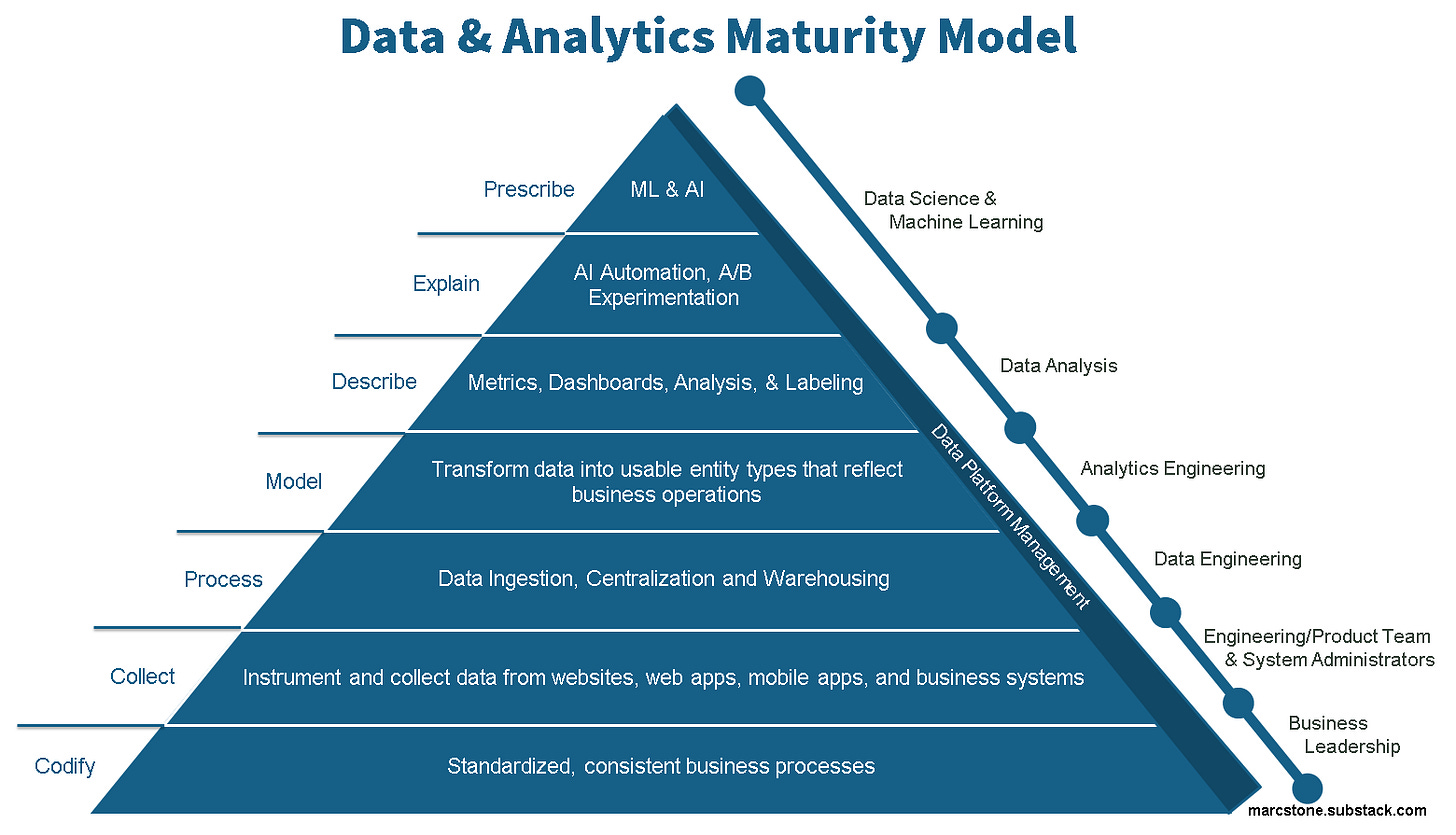LLM’s are over hyped and unable to deliver business value
It's a refrain I've heard echoed through posts and articles a lot lately. But here’s the thing, I’m watching from the front row as generative AI (AI) deliver scalable value and I feel like I’m just getting started. Even if LLM intelligence stopped progressing today, it looks to me like we have years of clever implementation and integration work that would create massive value throughout every department in a business. So why the disconnect?
The truth is, many people seem to be expecting AI to act like a seasoned professionals, even up to executives, solving problems accurately with minimal input. But here's a secret: even the best human executives need months of context to succeed. AI is no different.
If you're struggling to envision or implement valuable AI projects, it's time to turn the mirror on your own processes. Are they truly coherent? Do they make sense? Because AI projects thrive on logically coherent business processes. Ideally mapped out with which steps AI can automate.
In my experience, few companies have quality context written down in a way that AI can reliably automate. So, let's explore how AI isn't just a tool, but a mirror reflecting the clarity (or lack thereof) in business processes.
Looking In the Mirror
Enter the "GenAI Mirror" concept. Like a high-definition mirror in a brightly lit room, AI exposes every flaw and strength in your business processes. It's ruthlessly honest, reflecting back exactly what you feed it. When training workers on processes it’s common for gaps and incoherence to be brushed over with a few quick chat questions/answers in their first couple weeks. AI automations are less forgiving.
Ironically, this makes AI an invaluable diagnostic tool for business health. If you're getting subpar results from your AI initiatives, it's likely not a failure of the technology, but a reflection of unclear or inconsistent processes within your organization.
Think of it this way: If you asked a new hire to complete a task without any onboarding or documentation, would you blame them for poor performance? Of course not. The same principle applies to AI.
To better understand where AI fits in your organization's journey, let's revisit the Data & Analytics Maturity Model. A robust AI automation project will require a data-driven feedback loop placing it above reliable dashboards and metrics. So the program looking to deliver value with AI will at a minimum likely need clear processes, instrumented tracking systems, data processing capabilities, and reliable metrics/dashboards.
The GenAI Readiness Checklist
So an AI project readiness checklist would look something like this:
Process mapping: Create clear, detailed maps of your business processes. This is both your program architecture to determine where AI can be leveraged as well as the design document for input/output conditions.
Context compilation: Build a comprehensive "business collateral repository" that explains your company's operations, culture, and goals.
Data accessibility: Ensure your data is clean, centralized, and easily accessible to your AI tools.
Metric definition: Clearly define your KPIs and success metrics. This is the target function AI will use to optimize your business.
Experiment design: Set up a framework for testing and iterating on AI implementations.
Remember, if you look around your organization and don’t see exactly where AI can provide value, it's probably reflecting a lack of clarity in your processes. The good news? This reflection is your roadmap to improvement.
Start with process clarity. Document, refine, and optimize. Feed your AI tools with high-quality information and watch them become invaluable partners in your business operations.
The future belongs to AI-ready organizations. Those who can clearly articulate their processes, goals, and metrics will find in AI not just a tool, but a transformative force multiplier.
Are you ready to look in the mirror?
Have any thoughts or feedback? Find me on LinkedIn!





